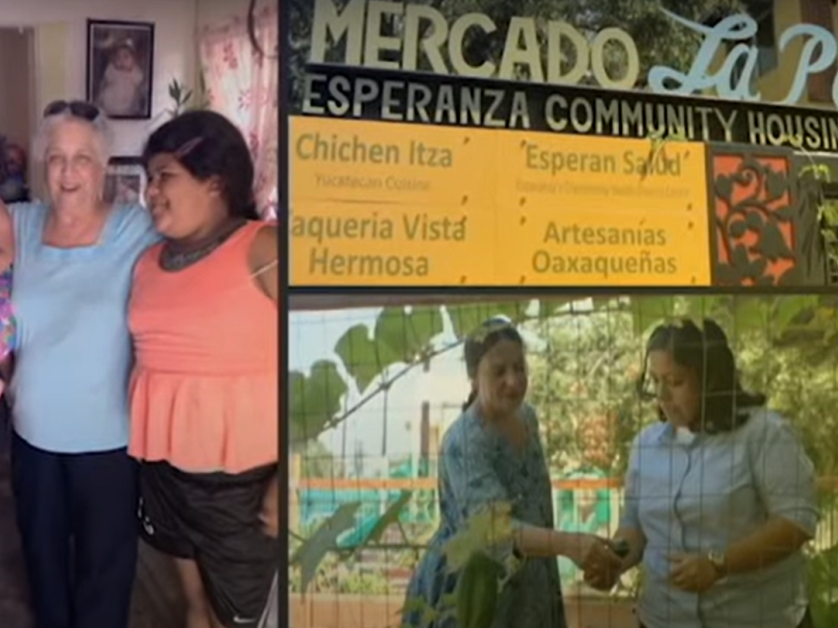Q&A: Nancy Halpern Ibrahim, MPH '93
On May 16, Nancy Halpern Ibrahim, the executive director of Esperanza Community Housing Corporation received the 2015 UCLA Award for Community Service
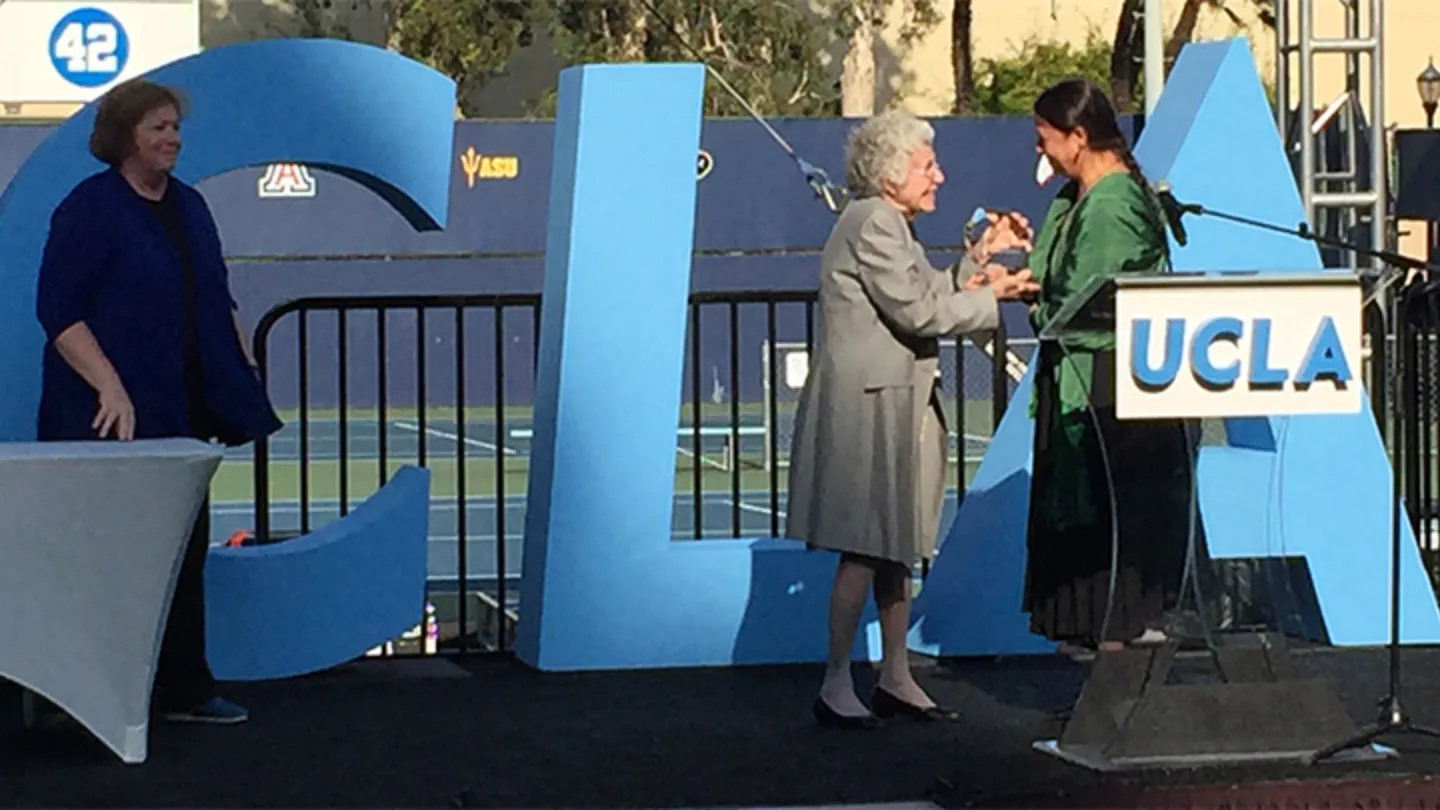
Presenting the UCLA Community Service Award to Ibrahim was Sister Diane Donoghue, founder of Esperanza and 1997 recipient of the same award. Photo by Dr. Ralph Frerichs, professor emeritus and founding chair of the FSPH Department of Epidemiology.
Nancy Halpern Ibrahim, '80, MPH ’93, received the 2015 UCLA Award for Community Service on May 16. We spoke with Ibrahim, the executive director of Esperanza Community Housing Corporation, about her work in the community and the impact it makes on hundreds of thousands of Los Angeles residents every year.
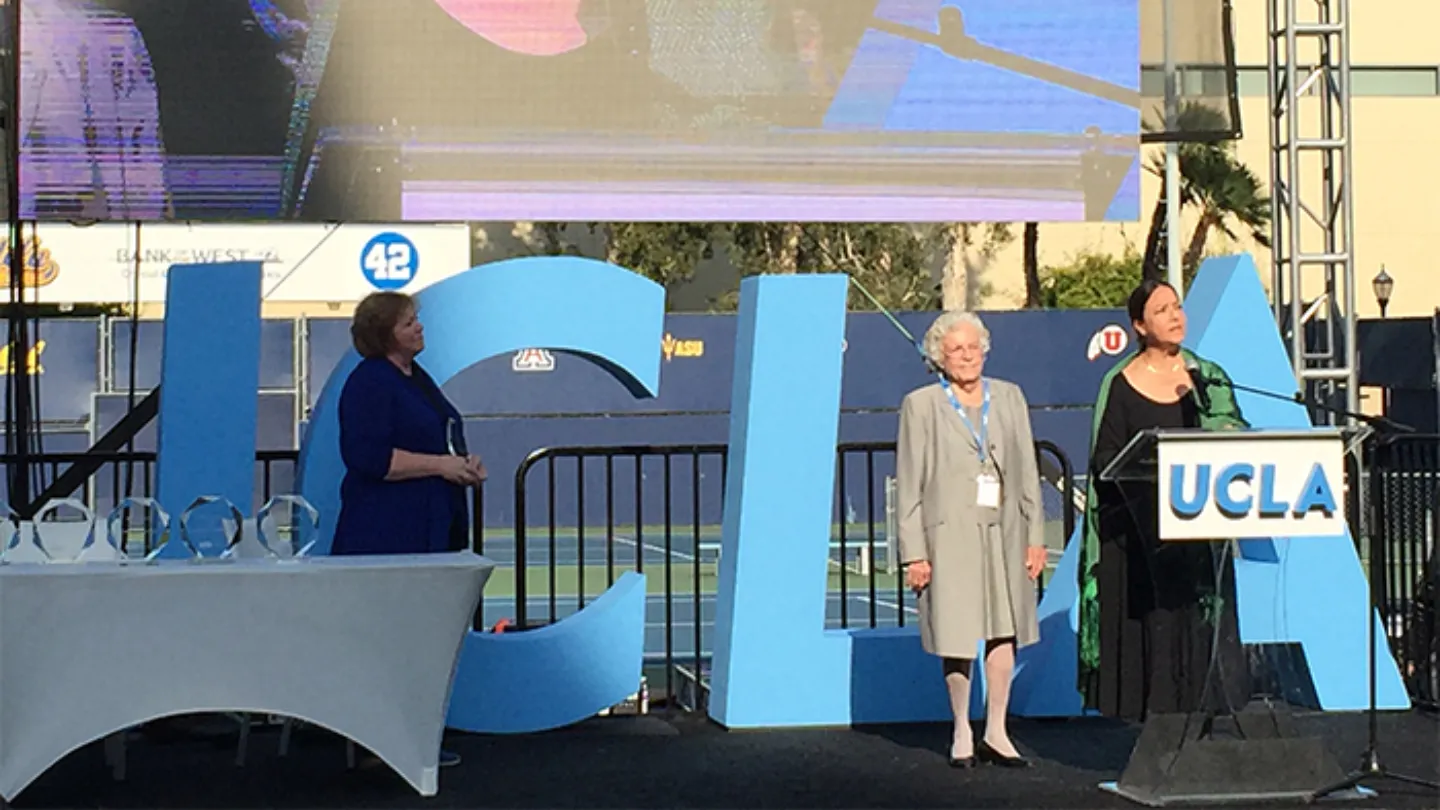
1. Your work at Esperanza spans so many issues, from economic development to environmental justice. Why is it important to take this holistic approach to improving community health?
Families are far more complex than one single issue, and poverty impacts families in complex, interrelated ways. A single family may be dealing with sub-standard housing conditions and lack of healthy food choices and outdoor recreational green space, and various health conditions like chronic disease or a family member with depression, and a school system failing to recognize the giftedness of it students or other educational needs, and no easy access to public transportation, and a child with special needs, and…
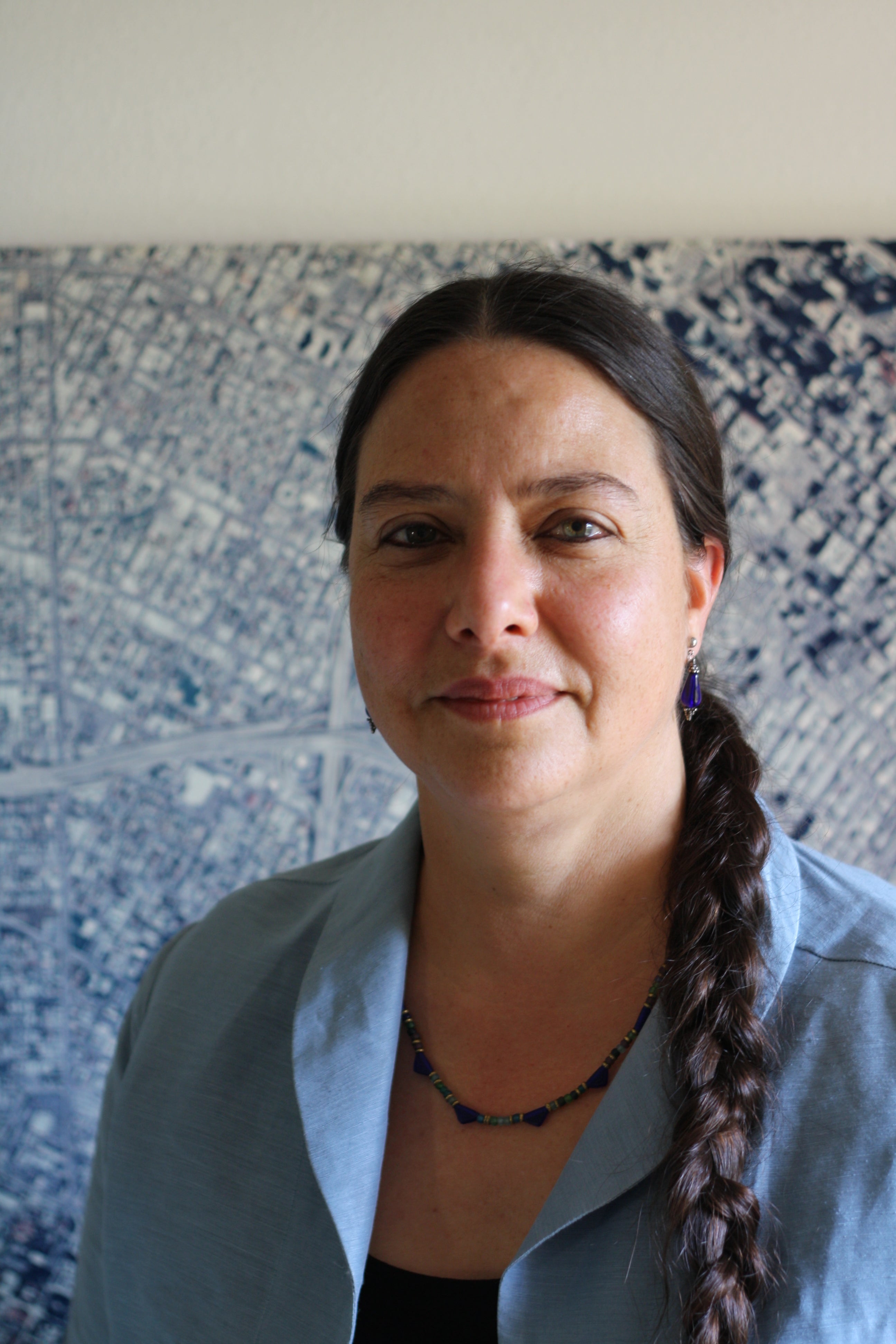
All social determinants of health are interconnected and interdependent; social, health and economic inequities must be addressed at their source. We believe addressing each problem in a piecemeal way is an inadequate investment that will fail on the prevention side and not acknowledge the cumulative, disempowering impact of multiple adverse conditions. Esperanza’s approach is to invest in the local social capital: cultivating cadres of leaders who make it possible to effect change in health and housing conditions, while connecting to economic development opportunities that help their families climb out of poverty.
2. You helped create Esperanza’s Community Health Promoters (Promotores de Salud) program, which has graduated hundreds of people who are now improving the health of their neighborhoods. Why has this program has been so effective? Do you think the success you’ve had can be replicated in other underserved communities?
I am proud to say that our program has graduated 438 Promotores de Salud over the past 19 years, and we currently have a class of 25 new trainees in the pipeline. In addition to our community health curriculum, this year’s class will have the opportunity to become certified Doulas (perinatal specialists).
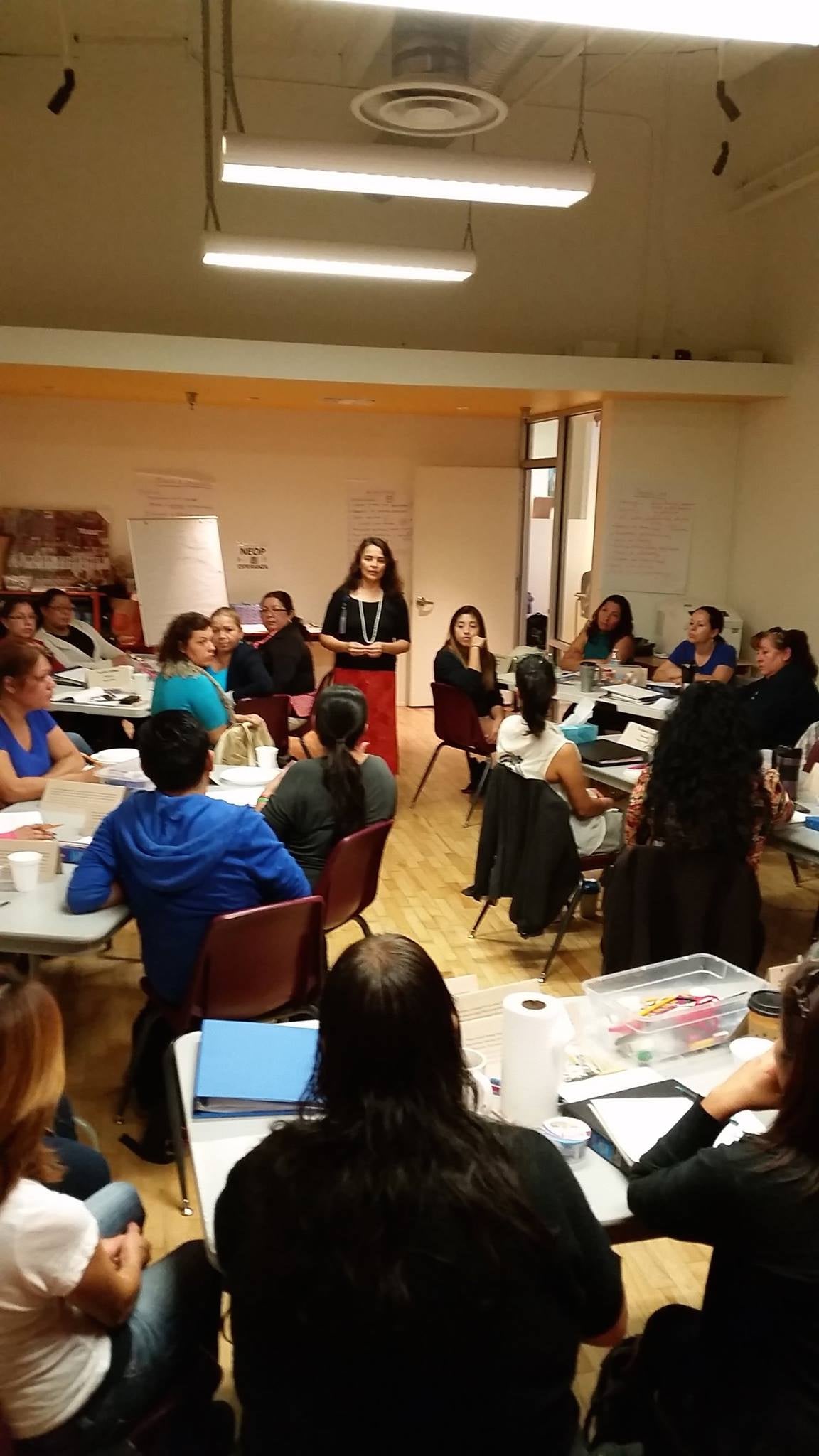
This program is based on the belief that members of any community are its greatest resource for positive change: the most motivated, the most committed, the most capable of communicating difficult or sensitive information, and the most effective. Connecting invested folks with the skills needed in the struggle to advance a health and human rights agenda has been the key to our success.
Esperanza’s is one of a growing number of Promotores de Salud programs across the U.S. One of our Promotoras, Lupe Gonzalez (Promotora class of ’96), sits on the national Promotores Initiative Steering Committee out of the Office of Minority Health. In California and a growing number of western states, Promotores are connecting through an organized association called Vision y Compromiso. Each authentic Promotora program is a local expression of community members developing ways of providing care, education and resources to each other, in a manner and language that individuals, particularly in Latino immigrant communities, will understand.
“Underserved” communities are often referred to as “hard to reach” populations, a term that seems to shift responsibility for receiving unequal health access onto themselves. But Promotores organized from similar cultural backgrounds and lived experience have a remarkable facility for connecting deeply with folks in ways that help guide them toward better health and positive behavior change.
3. How has Esperanza’s work transformed the landscape for the families with whom you work?
Over the past 25 years Esperanza Community Housing has developed nine quality, multi-bedroom apartment buildings affordable to low and very low income families in South Central Los Angeles. We have developed two pocket parks, a community garden and a unique economic development venue called Mercado la Paloma, which has generated 200 permanent jobs. All this work represents an example of progressive development and improvement of the community, without displacement.
Additionally, through programs related to community health, affordable housing and inclusive land-use advocacy, economic development, environmental justice, and arts and culture, we have created avenues for our local community to play a more active role in decisions that affect our lives. Quality housing provides opportunities for families to thrive, optimize their health, and seek employment, education and nutrition. Our Mercado La Paloma is a former garment factory that we have transformed over the past 15 years to become a cultural, culinary and community hub, and the incubator of some of the finest unique cuisine in Los Angeles. We also provide office space for non-profits on the second floor.
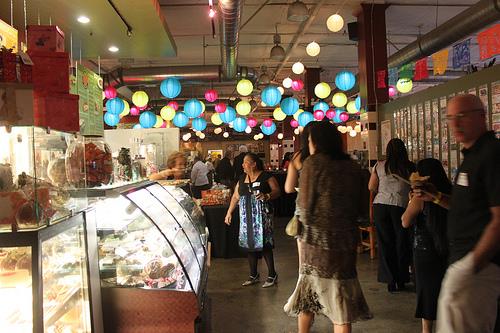 In recent years, Esperanza responded to concerns of our University Park neighbors who were experiencing noxious odors and adverse health effects caused by emissions from an oil extraction site nestled within a residential area. Together with community leaders, we formed the “People Not Pozos” campaign, working to end the volatile industrial practice of extracting oil or natural gas in communities where “sensitive receptors” reside or go to school.
In recent years, Esperanza responded to concerns of our University Park neighbors who were experiencing noxious odors and adverse health effects caused by emissions from an oil extraction site nestled within a residential area. Together with community leaders, we formed the “People Not Pozos” campaign, working to end the volatile industrial practice of extracting oil or natural gas in communities where “sensitive receptors” reside or go to school.
4. How did your time at FSPH prepare you for what you do now? What advice would you give our students?
When I joined the Fielding School of Public Health, I had just returned from years living in the Middle East, working with the health and economic development of Palestinian women living under military occupation. My years at the school afforded me involvement with extraordinary faculty and mentors, invaluable research tools, and cherished colleagues. The education I gained has strengthened me to respond to conditions of underdevelopment and human rights violations, whether here on the home front or abroad.
I was fortunate that by the time I was accepted to the school I had already spent years practicing community health in an area of critical need. The advice I offer students – take advantage of the opportunity to work in the field now, while you are gaining skills. Find volunteer and internship opportunities to partner with community-based groups or health facilities. Community residents and students have much to learn from and much to teach each other. Such engagement will help cultivate essential skills, perspectives and sensibilities, while also fostering a passion for the field.
5. What does it mean to you to be selected for the UCLA Award for Community Service?
As a UCLA undergraduate and graduate student I was always eccentric, insisting on my own interdisciplinary path, politics and personal integrity. This remarkable award affirms that my academic choices and unique path were not only correct for me, but have resulted in a body of work that is now valued by the University. The UCLA Community Service Award is an extraordinary distinction. I could never have imagined receiving such an honor, and induction into the cohort of remarkable alumna – not least of whom is Esperanza’s founder, Sister Diane Donoghue - UCLA class of ’52. I hope this distinction brings hope to other students who seek to tap into the wealth of interdisciplinary learning and enrichment possible at UCLA beyond the established curriculum of their academic department. The award is also affirmation of the extraordinary contribution that Promotores de Salud are making in the field of public health. I am very proud to be acknowledged for this work.
Read the UCLA awards announcement